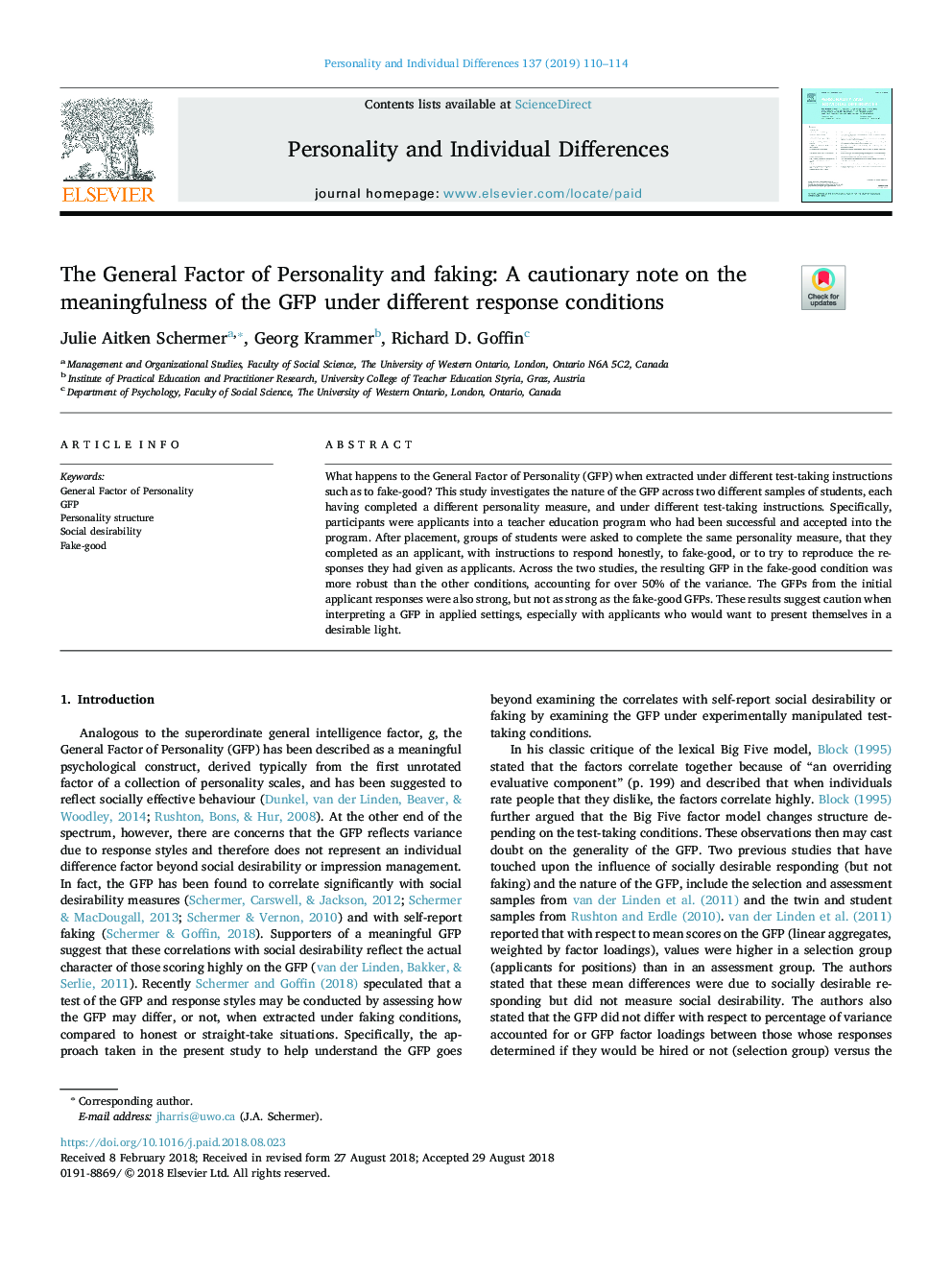| Article ID | Journal | Published Year | Pages | File Type |
|---|---|---|---|---|
| 11004395 | Personality and Individual Differences | 2019 | 5 Pages |
Abstract
What happens to the General Factor of Personality (GFP) when extracted under different test-taking instructions such as to fake-good? This study investigates the nature of the GFP across two different samples of students, each having completed a different personality measure, and under different test-taking instructions. Specifically, participants were applicants into a teacher education program who had been successful and accepted into the program. After placement, groups of students were asked to complete the same personality measure, that they completed as an applicant, with instructions to respond honestly, to fake-good, or to try to reproduce the responses they had given as applicants. Across the two studies, the resulting GFP in the fake-good condition was more robust than the other conditions, accounting for over 50% of the variance. The GFPs from the initial applicant responses were also strong, but not as strong as the fake-good GFPs. These results suggest caution when interpreting a GFP in applied settings, especially with applicants who would want to present themselves in a desirable light.
Related Topics
Life Sciences
Neuroscience
Behavioral Neuroscience
Authors
Julie Aitken Schermer, Georg Krammer, Richard D. Goffin,
